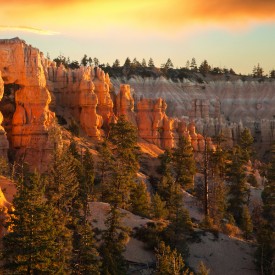Trends: Official Outdoor Rec Offices May Grow

With signatories from five U.S. states committing last week to “Confluence Principles,” the number of U.S. states with official outdoor recreation offices and department could increase exponentially over the next few years. The offices are instrumental in helping draft public policies and budgets for each state’s recreational activities, including RVing, as well as usage on state lands and parks used for RVing.
This story by Michael Verdon originally appeared in Trade Only Today.
The Confluence Accords include 12 principles contained in four pillars of conservation and stewardship, education and workforce training, economic development, and public health and wellness, said Jessica Wahl, executive director of the Outdoor Recreation Roundtable. “They were developed in 2018 by the Confluence of States, a bipartisan group of eight trailblazing states, to promote and advance best practices for all states to consider,” she said.
In 2020, there could be as many as 24 state recreational offices, either attached to governors’ offices or as independent state agencies.
“We’ve seen a tremendous amount of growth in the last two years with the current 16 state offices,” said Nicole Vasilaros, NMMA senior VP of government relations and legal affairs. “They bring outdoor recreation to a higher profile in those states, which creates a lot of buzz about outdoor recreation, and that helps boating.”
Vasilaros said the quick growth of outdoor recreation offices – from two or three just three years ago to 16 now – helps boating not only in coastal states, but also for inland states with large lakes in state parks and on rivers.
The politics of governors supporting the new offices also are very different. Wahl said establishing one of those offices is a “bit more complicated” than issuing an executive order. “They have to decide how to fund it, where you put the resources, whether it’s attached to the governor’s office or a separate department,” she said. “Some don’t even realize that they have recreational economies.”
Ultimately, Wahl believes that the new government offices are proving “what our industry has always talked about,” in terms of the impact of outdoor recreation on state economies. “These could be really good incubators at the federal level,” she said. “After all, governors become national departmental secretaries and even presidents. Really good ideas often come from the states.”


